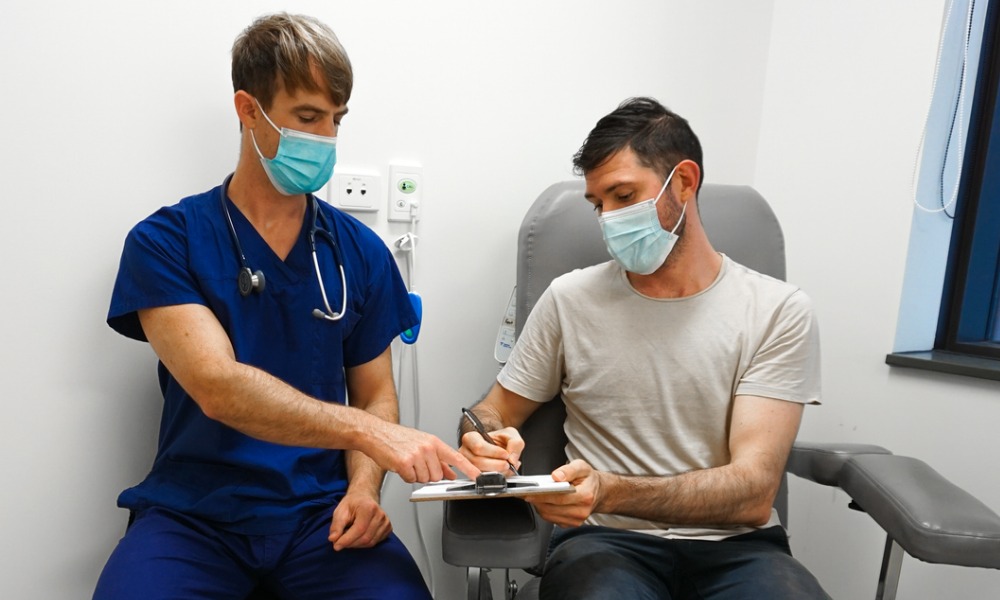
Agreement addresses New Zealand's historic pay equity issues

More than 30,000 nurses of Te Whatu Ora will be getting higher pay rates and a lump sum payment of up to $15,000 after they "overwhelmingly" accepted a pay equity settlement on Monday.
The settlement will see pay equity increases of 6.5% for senior nurses and 4.5% for registered nurses, enrolled nurses, health care assistants, and mental health care assistants.
This means senior nurses will earn between $105,704 and $153,060 for each year, in addition to penal rates, while registered nurses will see between $69,566 and $99,630 per annum plus penal rates.
The new pay rates will be backdated to March 7, 2022, according to the government, adding that nurses will also receive a lump sum payment of up to $15,000.
"This is the second pay rise for nurses in the past nine months – the first being the interim 14% pay equity adjustment paid in April this year and backdated to 7 March 2022, and the $10,000 lump sum payment (pro-rated) already part paid," said Health Minister Ayesha Verrall in a statement.
"I'm delighted that with today's agreement, we're able to put more money into the pockets of our hard-working nurses."
The proposed settlement stems from the mediation between the Te Whatu Ora, New Zealand Nurses Organisation (NZNO), and the Public Service Association (PSA), who have been in litigation over the claim in the Employment Relations Authority and Employment Court since early 2022.
In a statement from the NZNO, the litigation will now cease following the historic ballot, which included votes from members of the NZNO, PSA, and other part and present employees of Te Whatu Ora who do not belong to a union.
NZNO chief executive Paul Goulter called the development a "significant milestone" in New Zealand's nursing history.
"This is a long overdue step towards addressing the significant gender-based inequality nurses, midwives, health care assistants, and kaimahi hauora face in their work every day," Goulter said in a media release.
The pay equity claim from the unions was previously pushed to address New Zealand's gender-based pay discrimination, where nurses' wages weren't up to par with what professionals in male-dominated industries earn.
The government said the settlement agreed upon by the parties involved addresses these "historic pay equity issues."
"This government values nurses - and ending gender-based pay discrimination is a crucial part of our work in this area," Verrall said.
The pay equity increase will also address the workforce shortages in New Zealand, according to the health minister.
"Higher pay will also improve the retention of nurses and address workforce shortages – and we're already seeing strong results," she said.
In 2022, when the government announced the first pay rise for the sector, more than 8,000 nurses registered in New Zealand for the first time, a 60% increase from the previous year.
Following the settlement, the NZNO vowed to continue pushing for these new pay rates to all nurses across New Zealand, as those employed by Māori and Kiwi health providers, GPs, aged residential care facilities, Plunket, and community health were not covered in the deal.
"The next steps now are, how do we advance it for groups that aren't directly employed by Te Whatu Ora? Because that's an additional complication," he said as quoted by Radio New Zealand.
Goulter also pointed out that the historic pay rise will not affect the potential strike by hospital nurses on August 9, which members have yet to vote on.
According to the NZNO chief, the potential strike addresses collective agreement negotiations, particularly around the cost of living as well as terms and conditions of employment.
"So that's essentially as a forward-facing piece and our members weren't happy with the initial offers from Te Whatu Ora. We've gone back into negotiations, we've got further offers and our members will vote on them starting today," Goulter said.